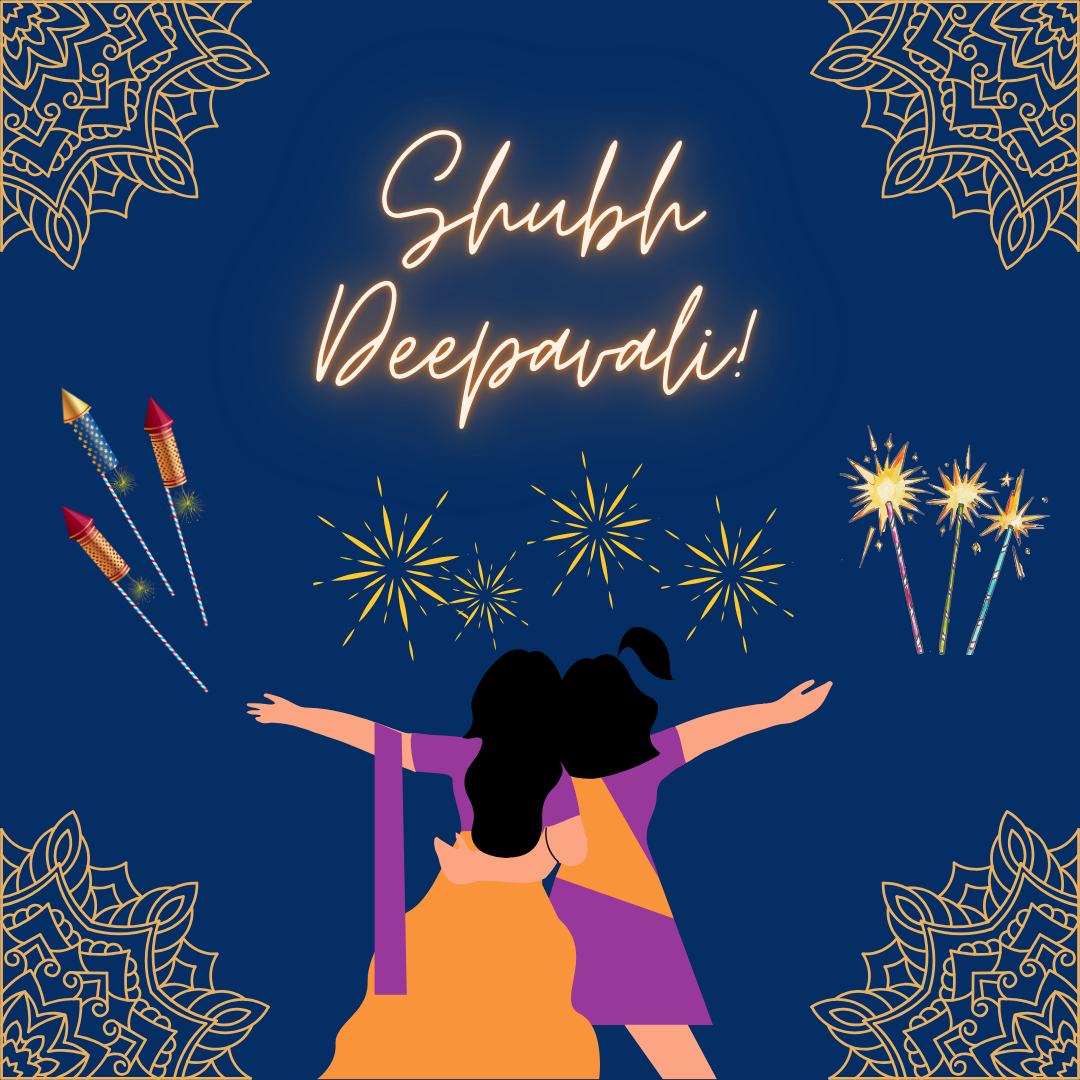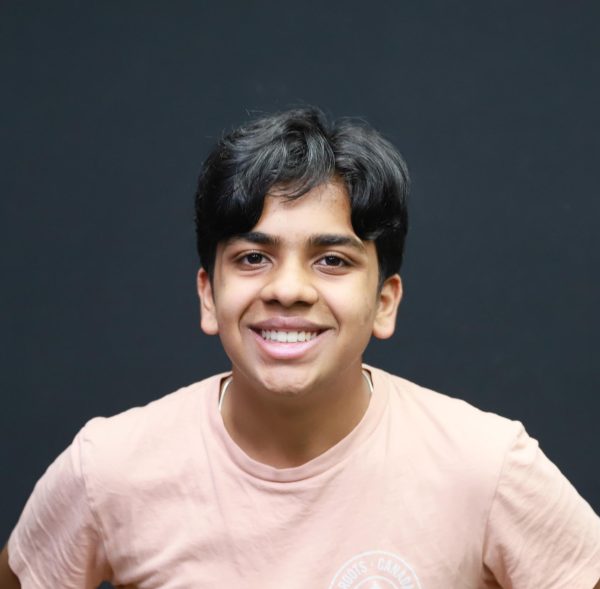Although the festival of Diwali has largely been celebrated in Indian cultures for a very long time, its rather simple message of “light over darkness, good over evil, knowledge over ignorance,” has something for everyone. As a result of this, it’s seen increasing popularity in communities such as ours: not just because of the large Indian diaspora, but also because of the universal positivity it spreads. With that being said, it’s worth taking a deep dive into Diwali.
The festival of Diwali is often called Deepavali, which is the Sanskrit word that “Diwali” is derived from. It can be split into dīpa, which means “light,” and āvali, which means a “sequence” or “row;” combining the two, it means a “row of lights.” As the name suggests, Diwali is commonly regarded as a festival of lights: it’s long been celebrated and symbolized by lighting lamps, or diyas, and bursting fireworks. Many also perform pujas, which are ritual worship ceremonies performed by Hindus as well as some Jains and Buddhists. Contrary to popular belief, however, it’s more than just one day of festivities, as it’s celebrated over the course of up to five days in a variety of ways.
The first day, marked by the 13th day of the Hindu month of Karthik, is widely celebrated in India as Dhanteras, a day of renewal: it’s characterized by cleaning and decorating one’s home with lights and rangoli (patterns made with colored powders), as well as new purchases. Some also celebrate the first or second days with Yama Deepam, the lighting of a lamp to please the Hindu deity of death, Yama.
The second day is Naraka Chaturdashi, the 14th day of Karthik, and is also known as Choti (small) Diwali. It’s often interpreted as a means to liberate souls from suffering in Naraka, or hell. Within as well as outside of this scope, a wide variety of rituals are practiced throughout India. For one, many South Indian families celebrate this as the main day of Diwali, celebrating it by purchasing and eating sweets and snacks, receiving an oil massage from elders in the family, wearing new clothes, visiting the temple, bursting firecrackers, and praying for an auspicious future. Other cultures in India perform rituals such as Hanuman Puja, Roop Chaudas, and Kali Chaudas on this day.
The third day, celebrated by not just Hindus but also the Jain and Sikh communities, is the last day of the dark fortnight of Karthik. Many North Indians celebrate this as the main day of Diwali by meeting family and friends, lighting fireworks and diyas, and performing Lakshmi Puja, for the goddess of wealth and prosperity. Puja for Kali, the goddess of war, is also common among Bengali Hindus. Jains celebrate this day as the anniversary of the liberation of the soul of Mahavira, the 24th Tirthankara in Jainism, while Sikhs celebrate it as the day Guru Hargobind was released by the Mughal emperor Jahangir from his imprisonment.
The fourth day is celebrated in a variety of ways. Some celebrate it as Govardhan Puja, representing the legend in which the Hindu deity Krishna protected his fellow farmers and cowherd from a vicious storm by lifting the Govardhan hill with his finger. The day takes an agricultural spirit in the form of Annakut for some communities. In fact, the Gujarati new year’s day falls on the day after Diwali. The fifth and final day of Diwali is celebrated by some as Bhai Duj, which celebrates the bond between brothers and sisters. This day has several symbolic meanings in Hindu mythology.
In India, Diwali has a large cultural significance, as people from various different communities come together to celebrate this event. In local Indian communities, it’s a festival that often transcends the barriers of religion, promoting a spirit of unity in diversity. This effect has spread across the world in recent times as well: as a result of the Indian diaspora worldwide, Diwali is an official holiday in a number of South-Southeast Asian and Latin American countries like Singapore and Trinidad and Tobago, and is widely celebrated non-officially in other countries with an Indian diaspora like the USA, the UK, and Canada. As such, it’s worth taking a look at some ways South Asians living in America celebrate it, especially when different people have unique traditions. Senior Ananya Gudapati has his share of family-specific practices when it comes to celebrating Diwali.
“The obvious Diwali tradition in my family is just playing with sparklers and lighting firecrackers as well as lamps; however, every Diwali, we do an hour-long puja to commemorate the event,” Gudapati said. “We crack coconuts and make vadas dipped in curd as well as ariselu (a traditional sweet) and sweet halwa. Apart from this, a red thread is tied to the arms of the men and around the necks of the women. This thread tradition has gone back since the times of my great-great-great-great-grandfather.”
Junior Vaani Mathur takes this uniqueness a step further with her family’s traditional rituals.
“For people with my last name, there’s a prayer we have to do to bless our stationery and any other school–or work–related supplies,” Mathur said. “Originally it was meant for notebooks and things like that, but nowadays we actually do the prayer with our laptops since they’re used much more commonly for school and work.”
It’s often hard for members of the younger generation to find personal meaning in their seemingly outdated family traditions, especially in South Asian and Hindu families who may not relate to their parents’ elaborate rituals and traditions. However, we can still find school-going children and young adults personally relating to the traditional practices that they grow up with in their own ways, especially for deeply symbolic festivals like Diwali.
“To me, Diwali means eating ethnic food, wearing traditional clothing, lighting up my house with diyas, and playing with sparklers and firecrackers,” Mathur said. “Most importantly though, Diwali means being surrounded by family and friends and celebrating the culture that makes me who I am.”
Sometimes, however, Diwali takes on a much more self-reflective and spiritual significance, as illustrated by its message of new beginnings.
“Diwali signifies the coming of a new year in some Hindu calendars, and with a new year you are encouraged to make changes to yourself,” Gudapati said. “Essentially, it is the purification of a person.”



